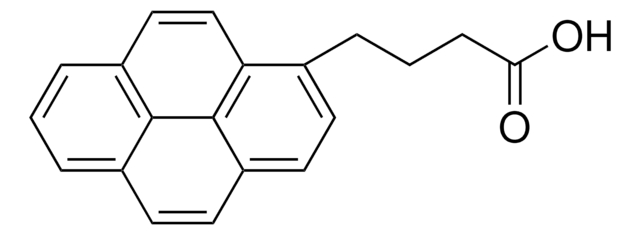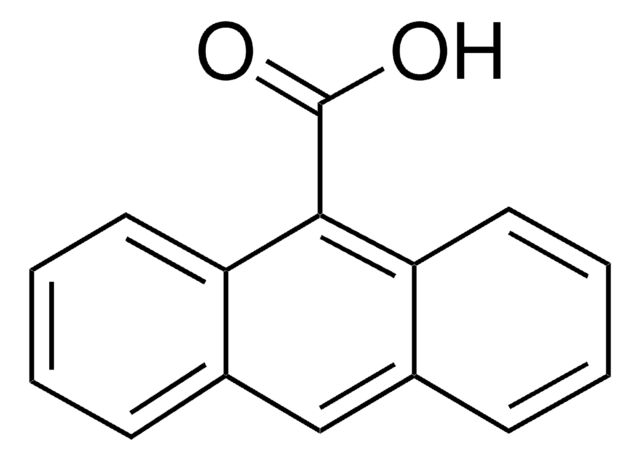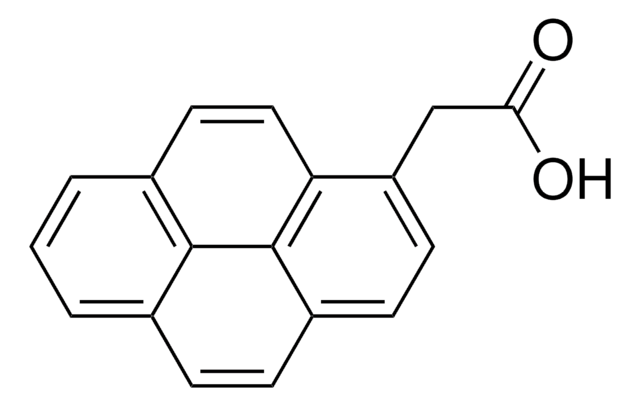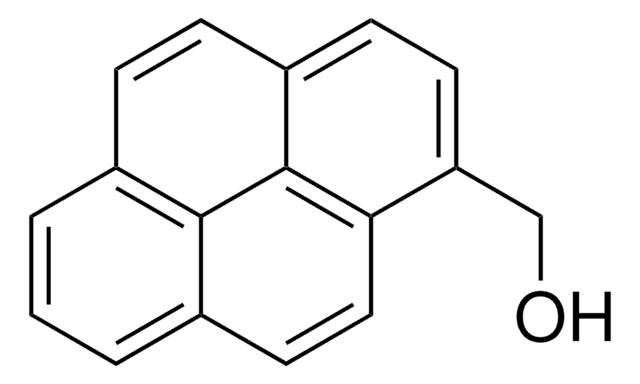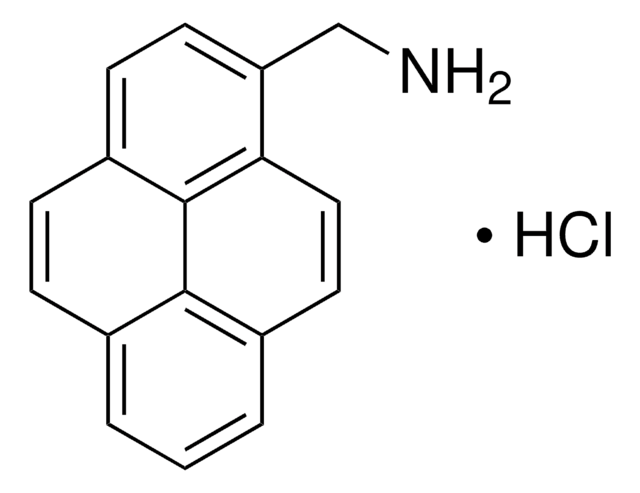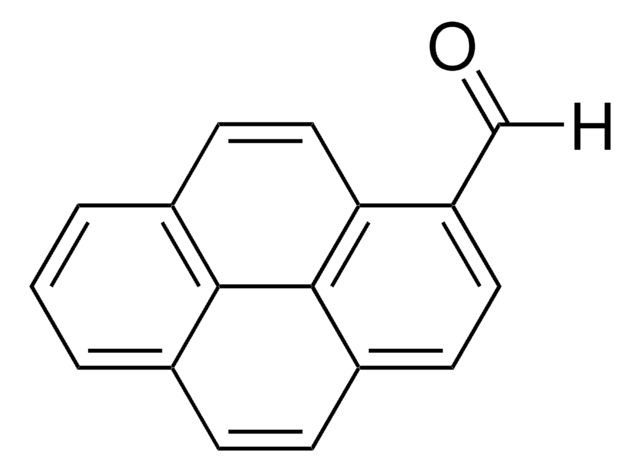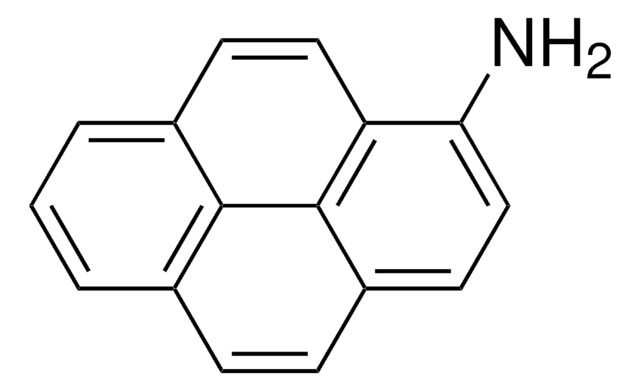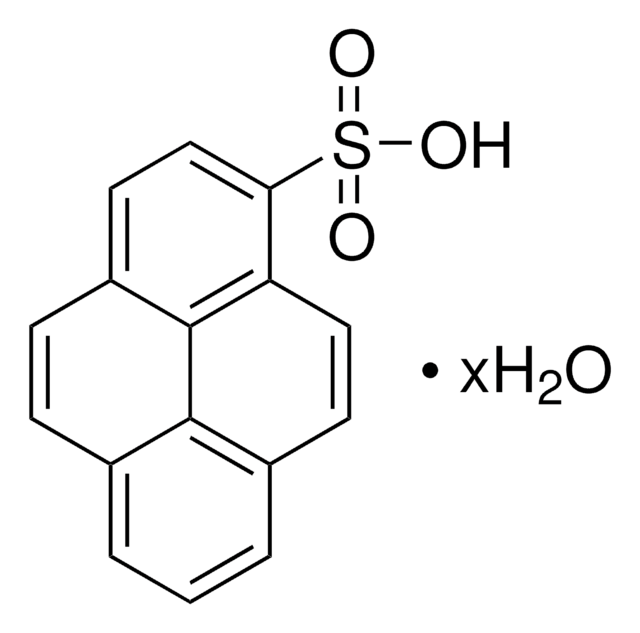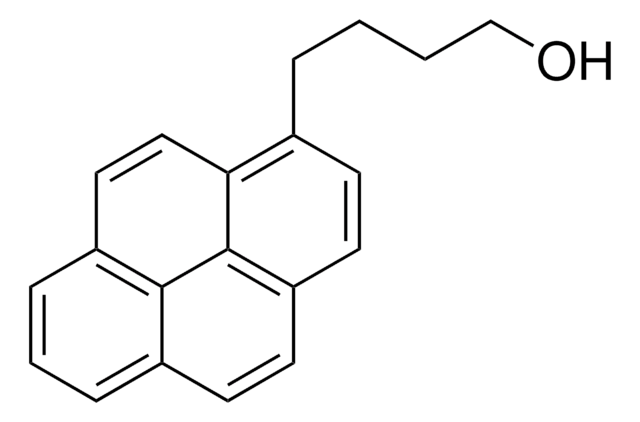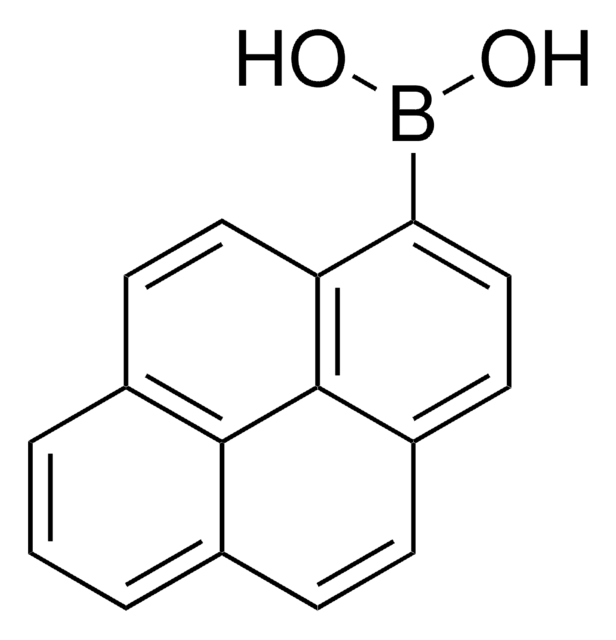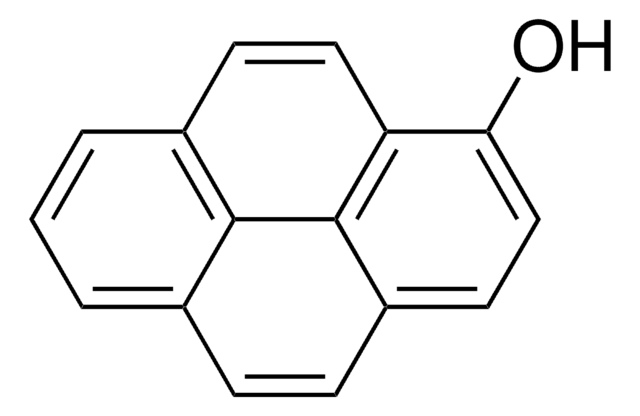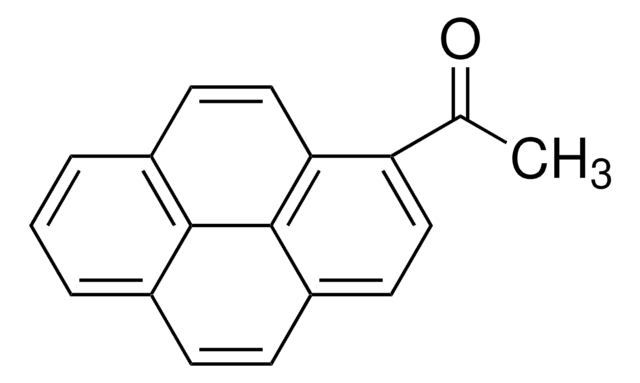All Photos(1)
About This Item
Empirical Formula (Hill Notation):
C17H10O2
CAS Number:
Molecular Weight:
246.26
Beilstein:
2375854
MDL number:
UNSPSC Code:
12352103
PubChem Substance ID:
NACRES:
NA.23
Recommended Products
Quality Level
Assay
97%
mp
270-272 °C (lit.)
SMILES string
OC(=O)c1ccc2ccc3cccc4ccc1c2c34
InChI
1S/C17H10O2/c18-17(19)14-9-7-12-5-4-10-2-1-3-11-6-8-13(14)16(12)15(10)11/h1-9H,(H,18,19)
InChI key
HYISVWRHTUCNCS-UHFFFAOYSA-N
Looking for similar products? Visit Product Comparison Guide
Related Categories
General description
1-Pyrenecarboxylic acid (PCA) is a polyaromatic derivative that has an amphiphilic characteristic. It is a fluorophore that shows absorption spectra in the UV region. PCA has a carboxylic acid group that attaches with pyrene nucleus. It can be used as a sensitizer that facilitates the electron transport from one medium to another.
Application
Functionalized pyrene for synthesis.
PCA can be used in the surface modification of graphene and carbon nanotubes (CNTs), which can further be used for a variety of electronic applications.
Storage Class Code
11 - Combustible Solids
WGK
WGK 3
Flash Point(F)
Not applicable
Flash Point(C)
Not applicable
Personal Protective Equipment
dust mask type N95 (US), Eyeshields, Gloves
Choose from one of the most recent versions:
Already Own This Product?
Find documentation for the products that you have recently purchased in the Document Library.
Customers Also Viewed
S Mocanu et al.
Physical chemistry chemical physics : PCCP, 19(40), 27839-27847 (2017-10-11)
Electron paramagnetic resonance (EPR) and fluorescence spectroscopies provide molecular-level insights on the interaction of paramagnetic and fluorescent species with the microenvironment. A series of dual molecular probes bearing fluorescent and paramagnetic moieties linked by flexible short polyether chains have been
Haodong Liu et al.
Advanced materials (Deerfield Beach, Fla.), 33(8), e2004782-e2004782 (2021-01-16)
The revolutionary and pioneering advancements of flexible electronics provide the boundless potential to become one of the leading trends in the exploitation of wearable devices and electronic skin. Working as substantial intermediates for the collection of external mechanical signals, flexible
Noncovalent functionalization as an alternative to oxidative acid treatment of single wall carbon nanotubes with applications for polymer composites
Simmons TJ, et al.
ACS Nano, 3(4), 865-870 (2009)
El Hadji Mamour Sakho et al.
Materials science & engineering. C, Materials for biological applications, 95, 43-48 (2018-12-24)
We herein report the synthesis of MFe2O4 (M = Mn, Mg)/reduced graphene oxide (MFe2O4/RGO) through a simple and novel pressure cooker assisted solvothermal method. The structure and morphology of the as-prepared materials were investigated using X-ray diffraction (XRD), transmission electron microscopic (TEM)
Tunable graphene-silicon heterojunctions for ultrasensitive photodetection
An X, et al.
Nano Letters, 13(3), 909-916 (2013)
Our team of scientists has experience in all areas of research including Life Science, Material Science, Chemical Synthesis, Chromatography, Analytical and many others.
Contact Technical Service